Hong Kong protesters warned as police use pepper spray, water cannon on citizens
An ominous warning has been issued to tens of thousands of young protesters who have flooded onto Hong Kong’s streets.
Hong Kong police have fired rubber bullets and tear gas at demonstrators who threw plastic bottles, as protests against an extradition bill that would allow people to be sent to mainland China for trial descended into violent chaos.
Tens of thousands of protesters had gathered peacefully outside the Chinese-ruled city’s legislature before tempers flared, some charging police with umbrellas.
Police warned them back, saying: “We will use force.”
Police used pepper spray, tear gas and batons to force crowds back, while some individuals were chased.
Police fire tear gas at throngs of protesters in the streets of Hong Kong amid growing anger over the government’s proposal to change an extradition law. https://t.co/QnStM9lbk8 pic.twitter.com/TG21CTvkhh
— ABC News (@ABC) June 12, 2019
Police baton charge and bash an unarmed young man. #hongkong #AntiELABhk pic.twitter.com/yTOcLgYfGS
— Adam Ni (@adam_ni) June 12, 2019
Police equipped with riot shields pushed back against protesters attempting to storm past barricades to get into Hong Kong government headquarters.
— ABC News (@ABC) June 12, 2019
Demonstrators used umbrellas to fend off tear gas and high-pressure water deployed by authorities. https://t.co/ccGi3si7lA pic.twitter.com/XXLfbs7nLT
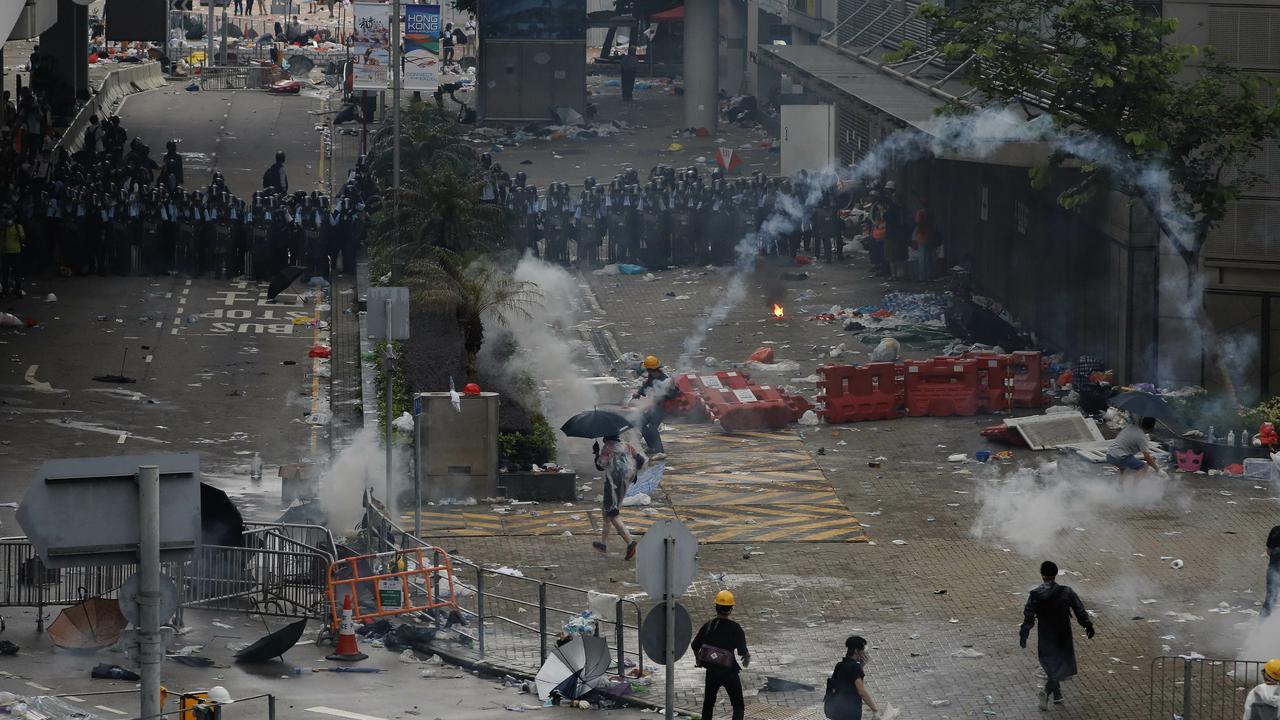
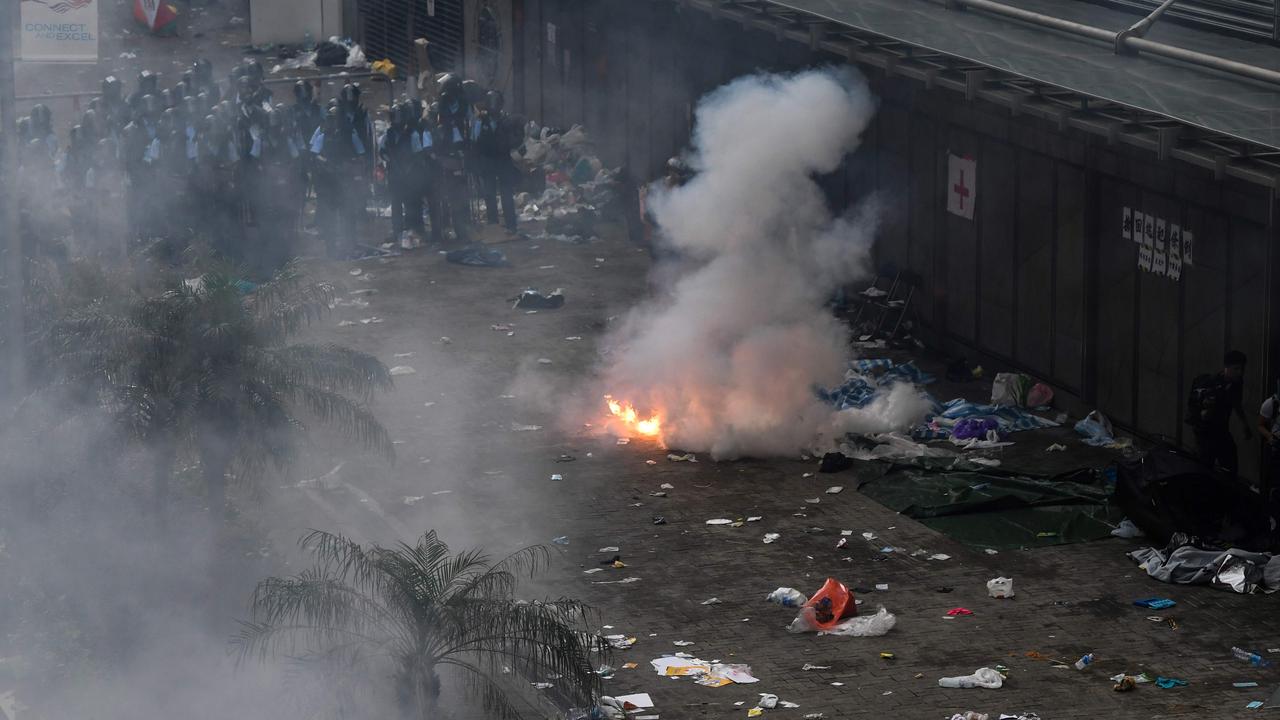
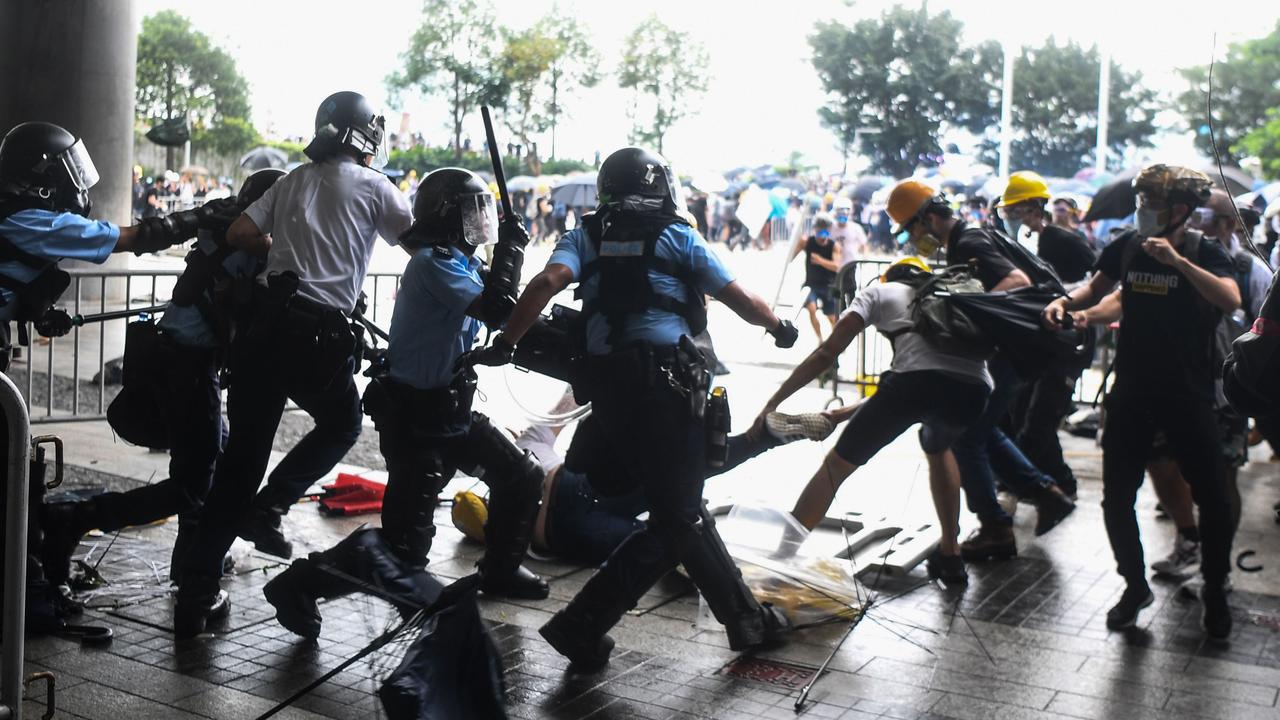
So much tear gas was used commuters in nearby subway stations and shopping malls were impacted, according to the New York Times. Many had to seek medical treatment.
Mtr panic as teargas enters the mtr station! pic.twitter.com/RP7AerYcdz
— LostDutch (@lostdutchhk) June 12, 2019
A furious Hong Kong politician turned on police, accusing them of being disrespectful as chaos ensued near the parliament.
Charles Mok visited the protest, defending the crowd as “well-meaning citizens” exercising freedom of expression.
“I am worried that they (police) might just use force to remove these people and arrest them all,” Mr Mok said. “This is not Hong Kong.”
In a heated confrontation with a policeman translated by journalist Naomi Ng, Mr Mok said: “What kind of attitude towards lawmakers is this?”
The officer responded: “It’s about mutual respect.”
Mr Mok replied: “I’m very respectful. But you are disrespecting lawmakers. What do you think you’re doing here? You’re beating up Hong Kongers.”
Police then warned him to “be careful. Protecting yourself is what’s most important.”
Mr Mok pointed his finger and angrily said: “This is the Legislative Council. Do you think you’re the boss around here? You keep saying you are wounded? (With police like you), it’s game over for Hong Kong.”
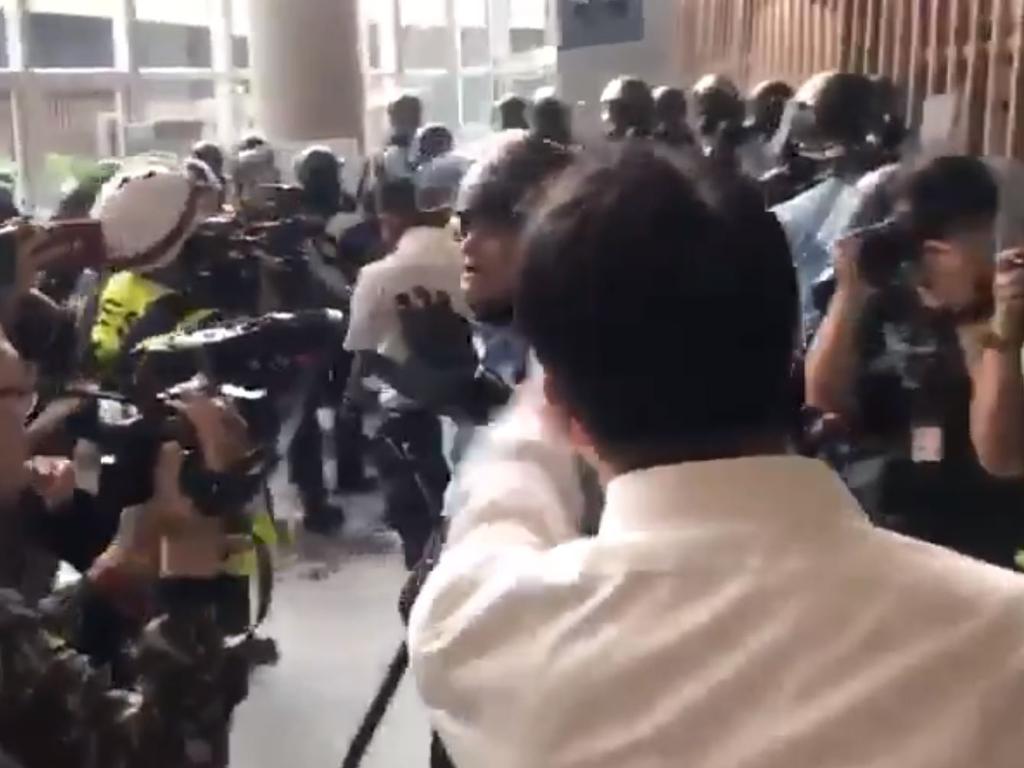
Enraged Lawmaker Charles Mok argues with police on disrespecting the legislature: “This is Legco! Do you think you’re the boss here? ... you’re beating up Hongkongers!†#HongKong #ExtradictionBill #HongKongProtests pic.twitter.com/LwLfZY43Qn
— Naomi Ng å³å®¶æ®· (@ngnaomi) June 12, 2019
Civil Human Rights Front, which organised Sunday’s protest in which an estimated more than a million people took to the streets in protest against the extradition bill, accused police of using unnecessary violence.
The protesters, most of them young people dressed in black, had erected barricades as they prepared to hunker down for an extended occupation of the area in scenes reminiscent of pro-democracy “Occupy” protests that gridlocked the former British colony in 2014.
“This is the end game for Hong Kong, it is a matter of life or death. That’s why I come,” Rocky Chang, a 59-year-old professor, told Reuters news agency.
“This is an evil law.”
The violence had died down by early evening under light rain, but tens of thousands still jammed the streets in and around Lung Wo Road, a main east-west artery near the offices of embattled Hong Kong Chief Executive Carrie Lam.
“Didn’t we say at the end of the Umbrella movement we would be back?” pro-democracy politician Claudia Mo said, referring to the trademark yellow umbrella used for the 2014 demonstrations.
“Now we are back!” she said as supporters echoed her words.
Earlier today, tens of thousands of people were warned to move away from the area after their protest delayed a legislative session on a proposed extradition bill that has raised fears over greater Chinese control in Hong Kong.
In the first official reaction to the latest protests, a top government figure called on demonstrators to unblock key arteries and withdraw.
“I also urge citizens who have gathered to show restraint as much as possible, disperse peacefully and do not defy the law,” Matthew Cheung, the city’s chief secretary, said in a video message.
His warning comes as the overwhelmingly young crowd overflowed onto a major downtown road, overturned barriers and tussled with police outside the building that also houses the chambers where the legislature was to discuss the bill, which would allow criminal suspects in Hong Kong to be sent for trial in mainland China.
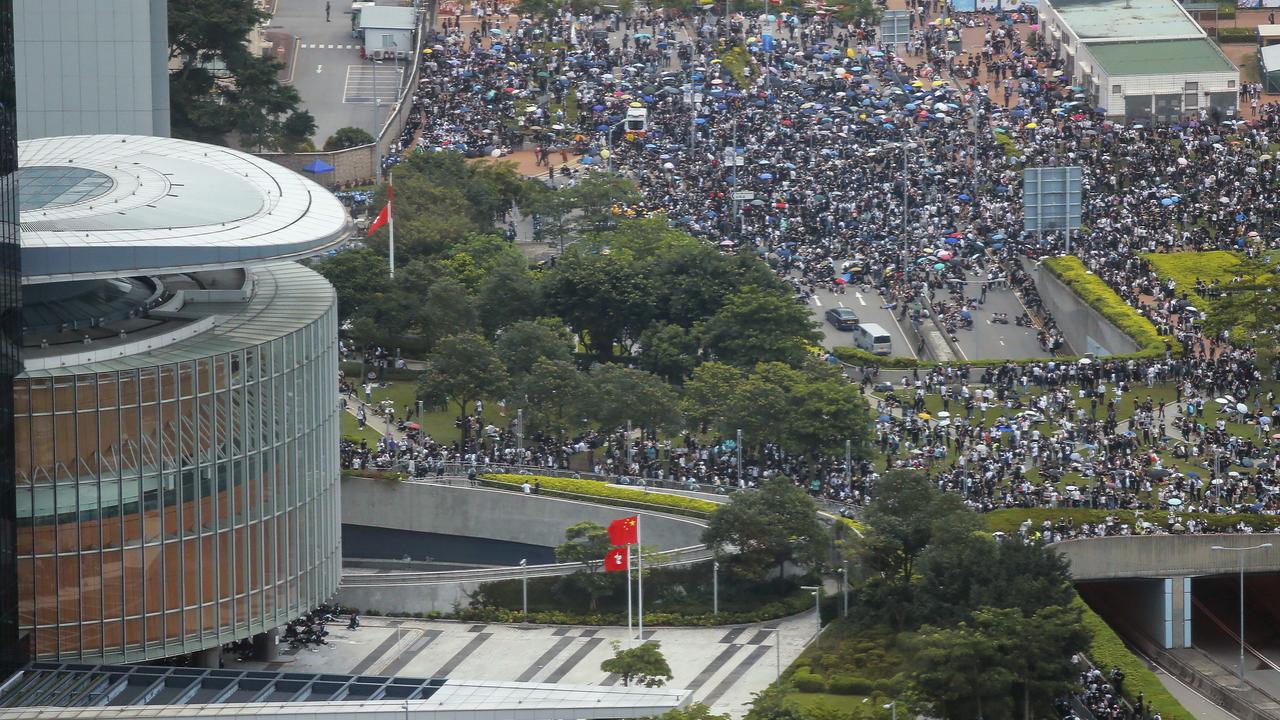
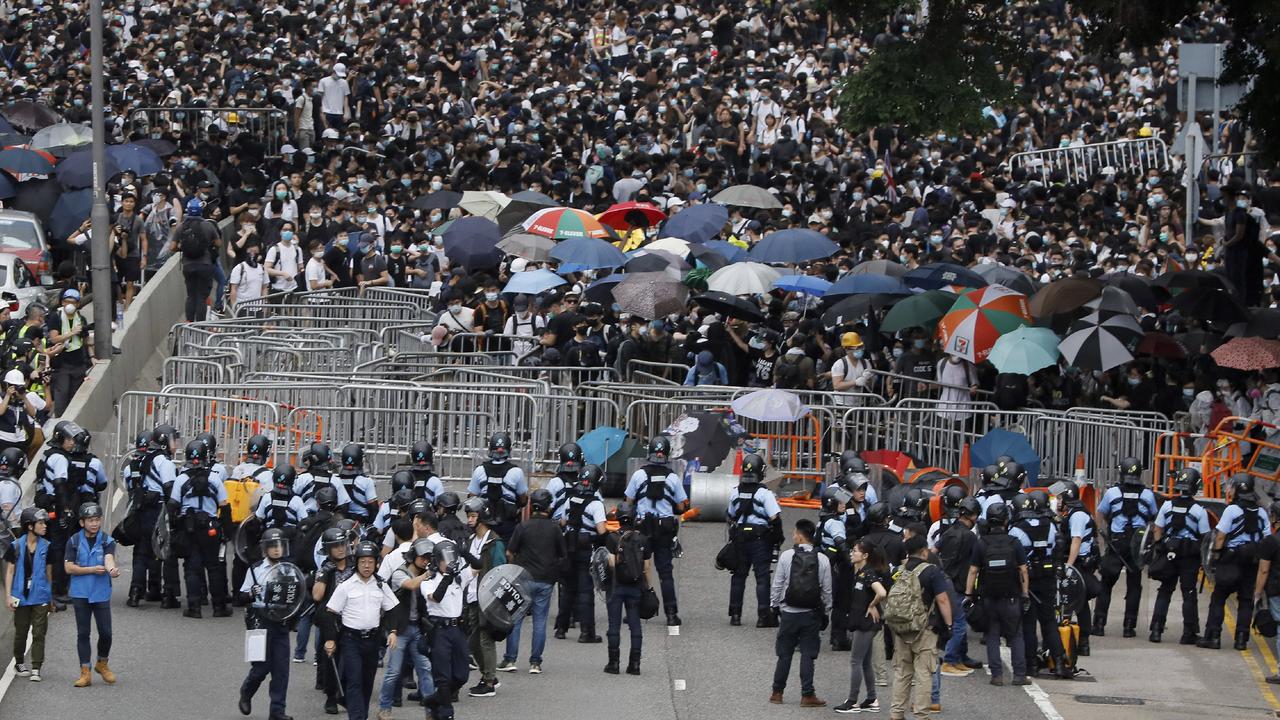
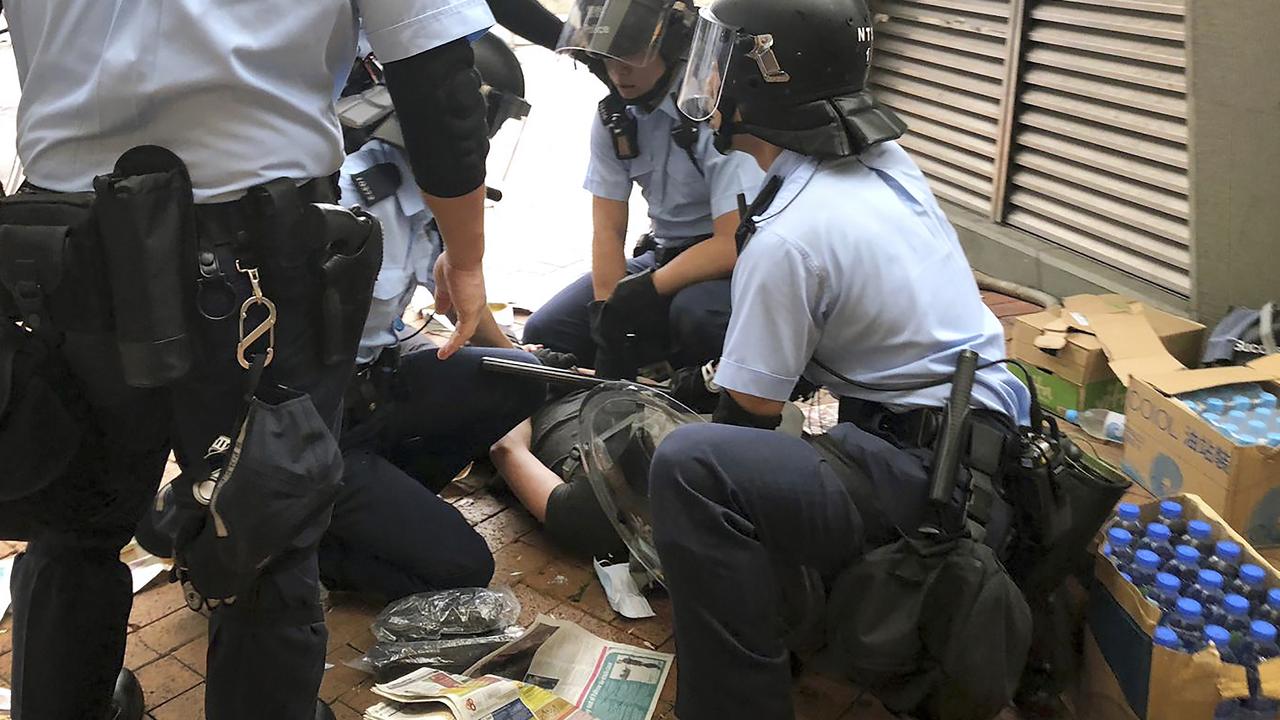
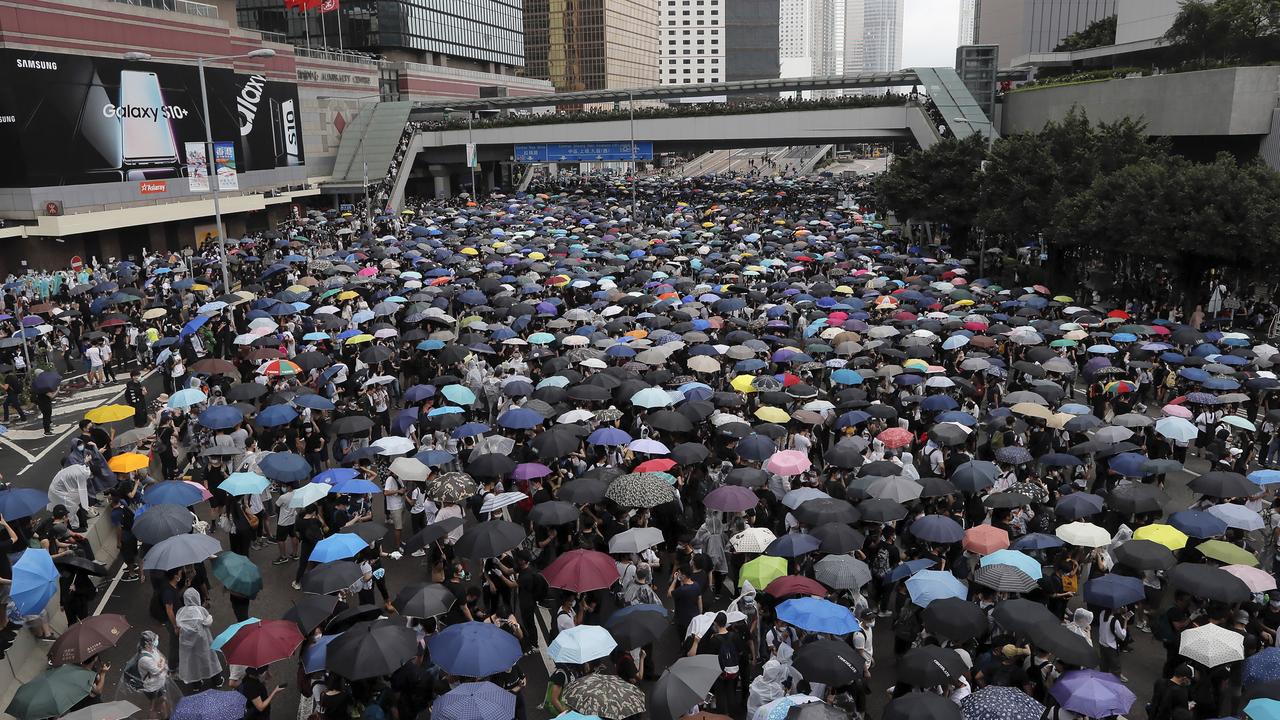
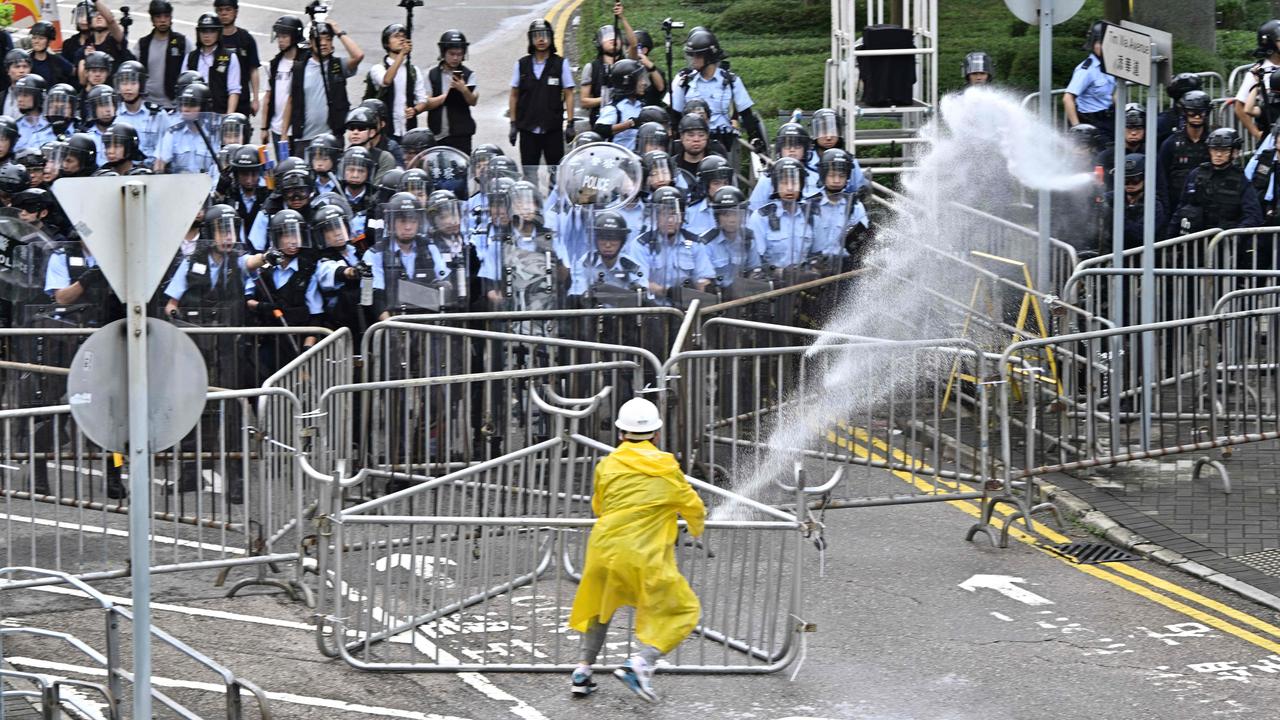
A curt government statement said the session scheduled to begin at 11am would be “changed to a later time”.
An earlier statement said staff members were advised not to go to work and those already on the premises were told to “stay at their working place until further notice”.
The delay appeared to be at least a temporary victory for the bill’s opponents whose protests have prompted Hong Kong’s biggest political crisis since pro-democracy demonstrations closed down parts of downtown for more than three months in 2014.
Some businesses closed for the day, and labour strikes and class boycotts were called.
The protests are a challenge to China’s ruling Communist Party and President Xi Jinping who has in the past said he would not tolerate Hong Kong being used as a base to challenge the party’s authority. But they are also giving vent to young Hong Kongers alienated by a political process dominated by the territory’s economic elite.
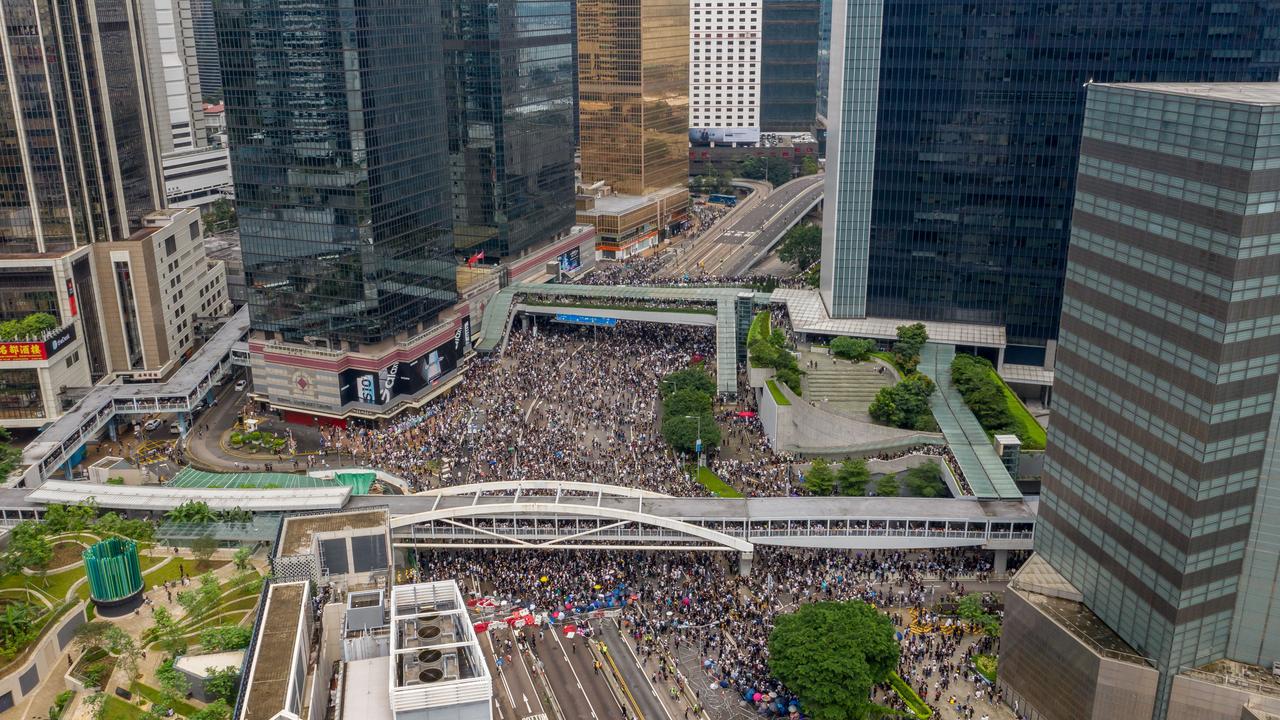
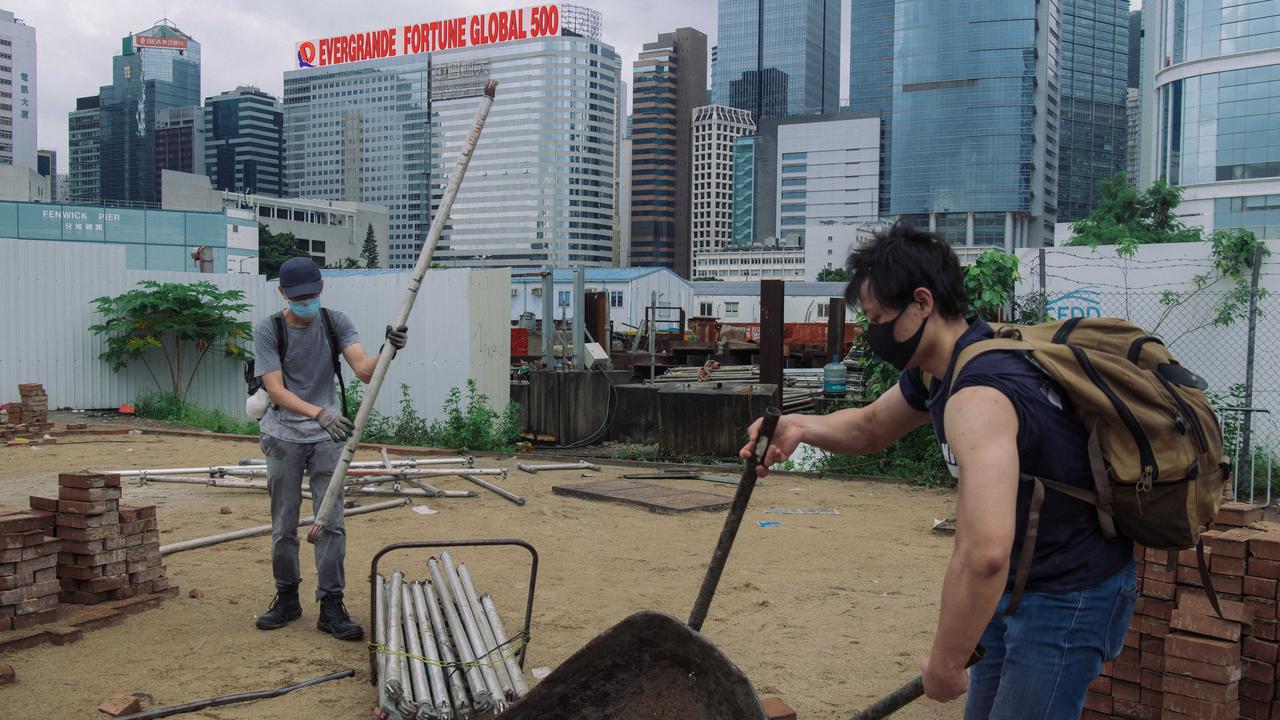
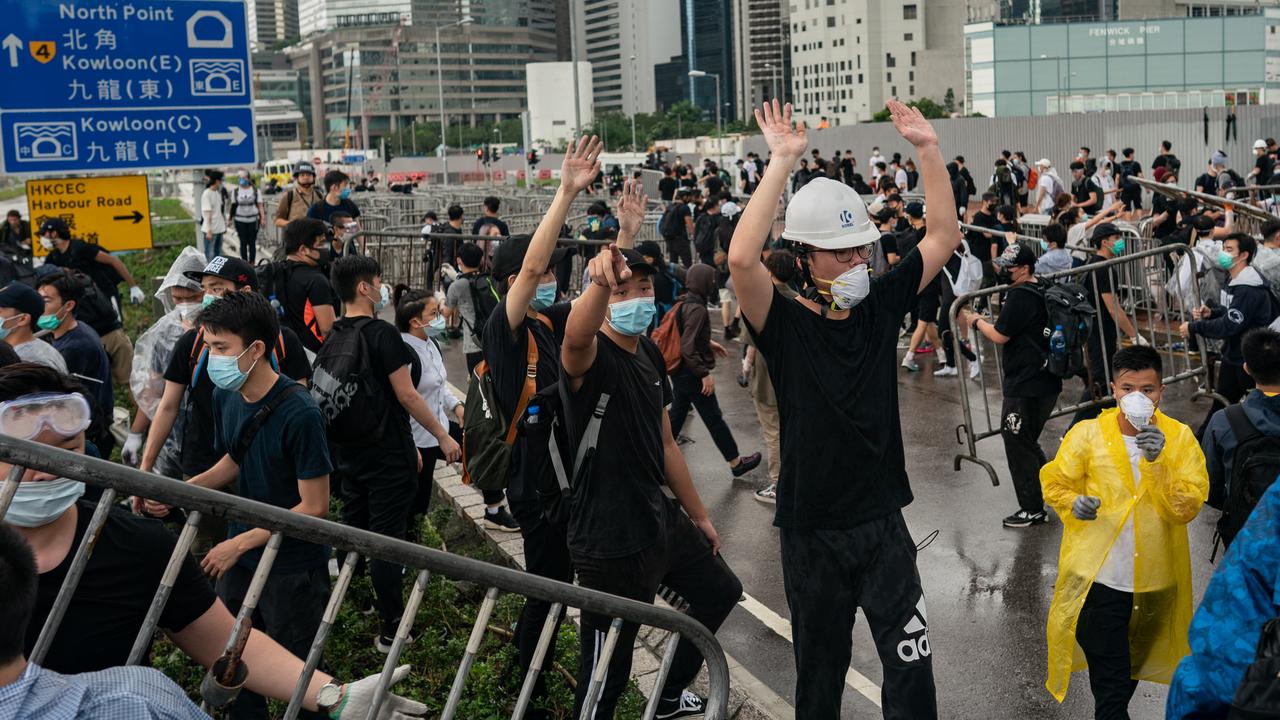
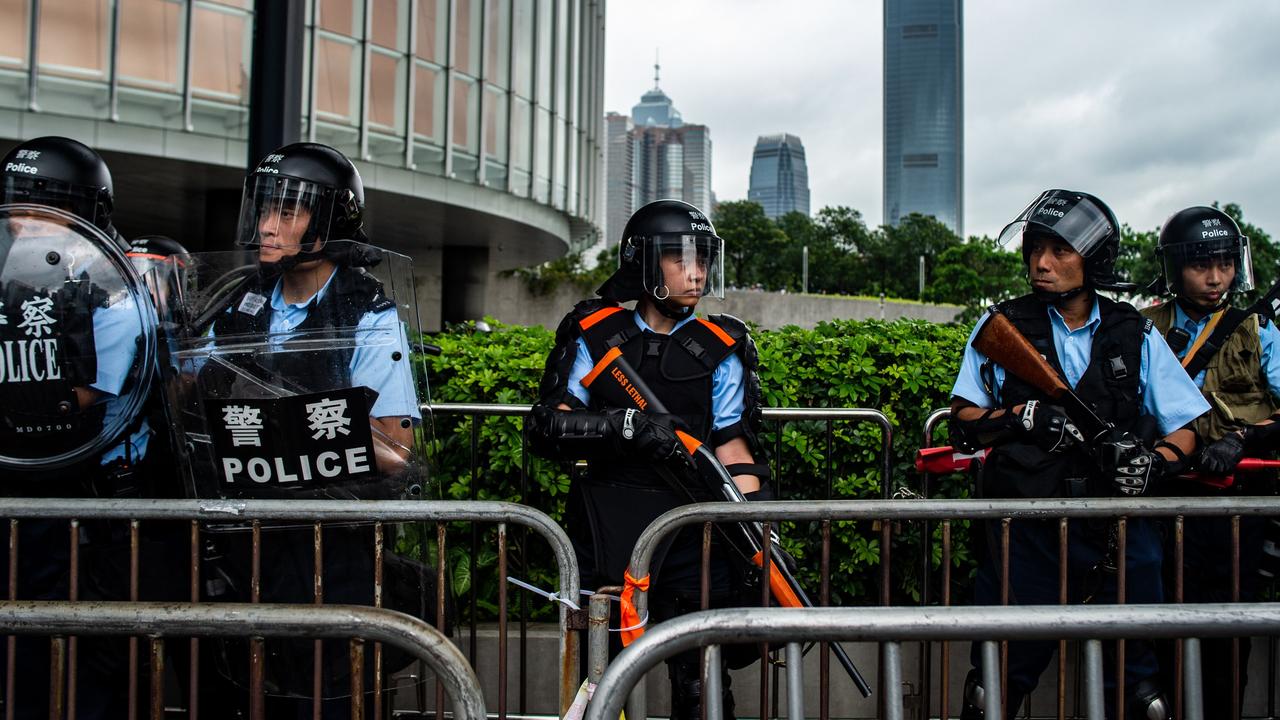
Protesters said they hoped the blockade would persuade Ms Lam’s administration to shelve the proposed amendments to the Fugitive Offenders Ordinance and the Mutual Legal Assistance in Criminal Matters Ordinance.
“We want the Government to just set the legislation aside and not bring it back,” said a protester who gave only his first name, Marco, to avoid possible repercussions from authorities.
The protest was a watershed moment for Hong Kong’s young generation who face difficult job prospects and skyrocketing housing prices, said another protester, who gave her name as King, also out of fear of repercussions.
“We have to stand up for our rights, or they will be taken away,” she said.
Dressed in black T-shirts and jeans, many protesters appeared undaunted by demands to disperse from police who briefly used pepper spray and detained dozens overnight on Tuesday.
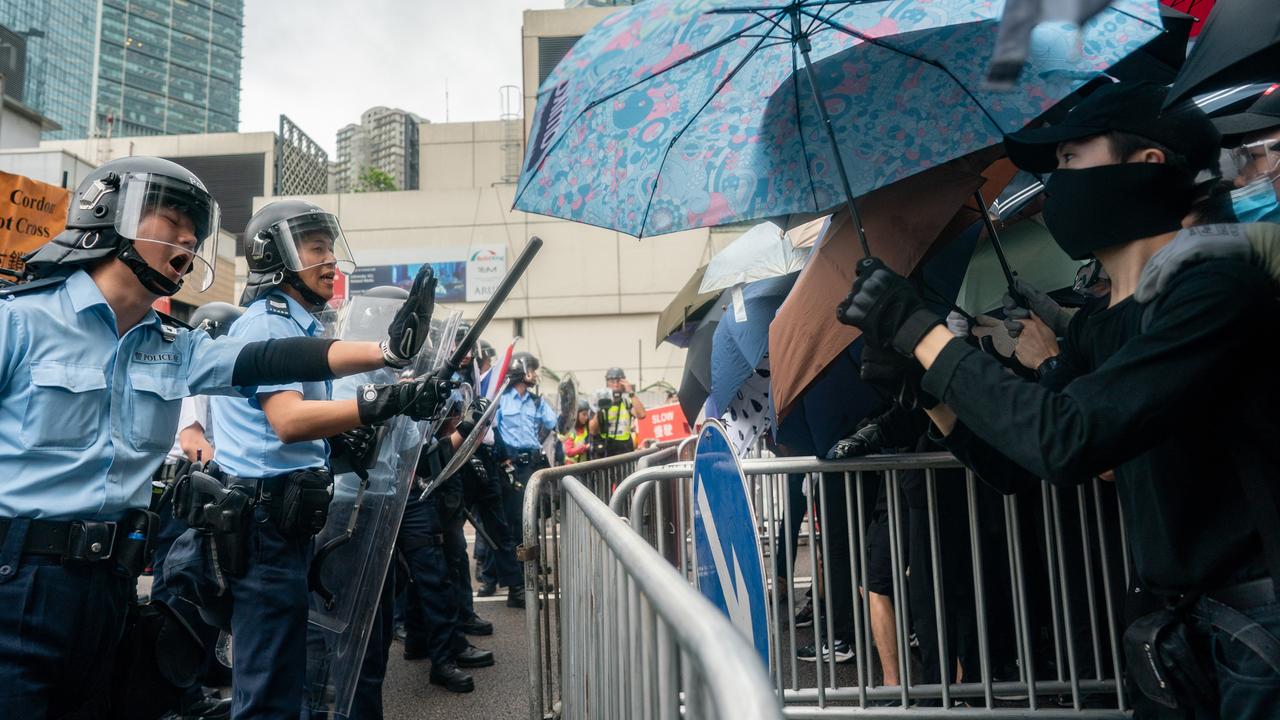
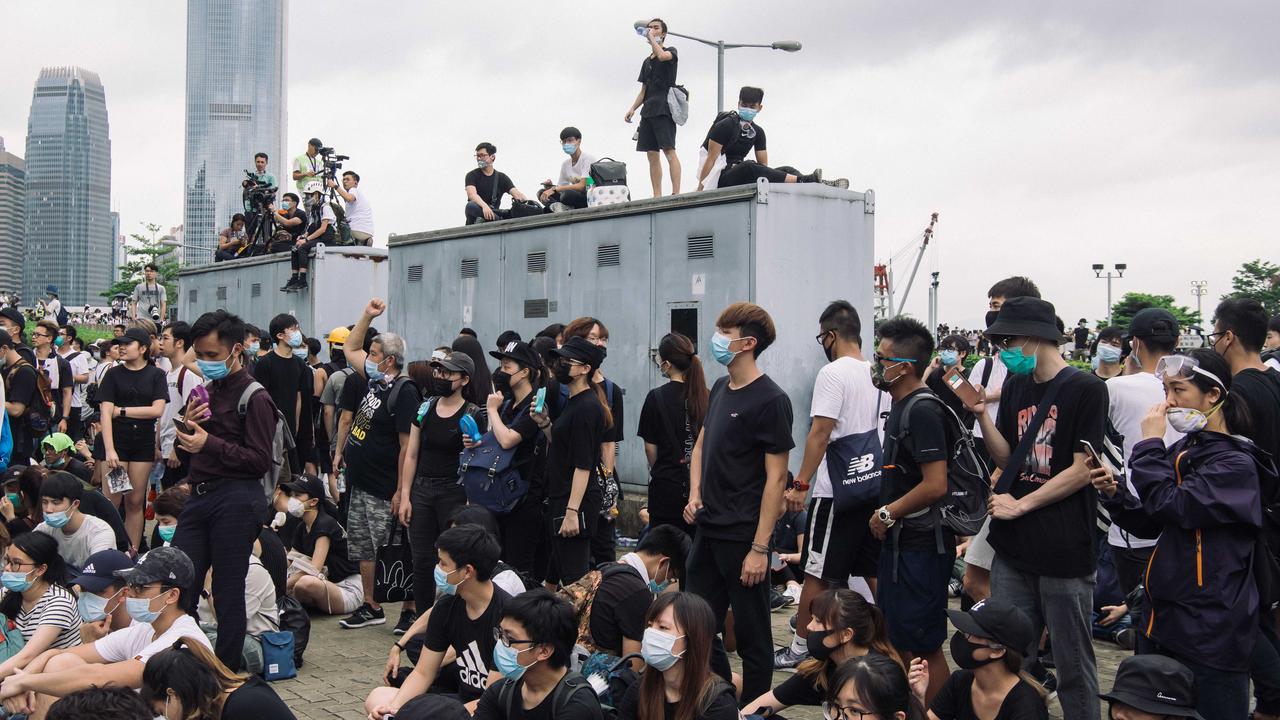
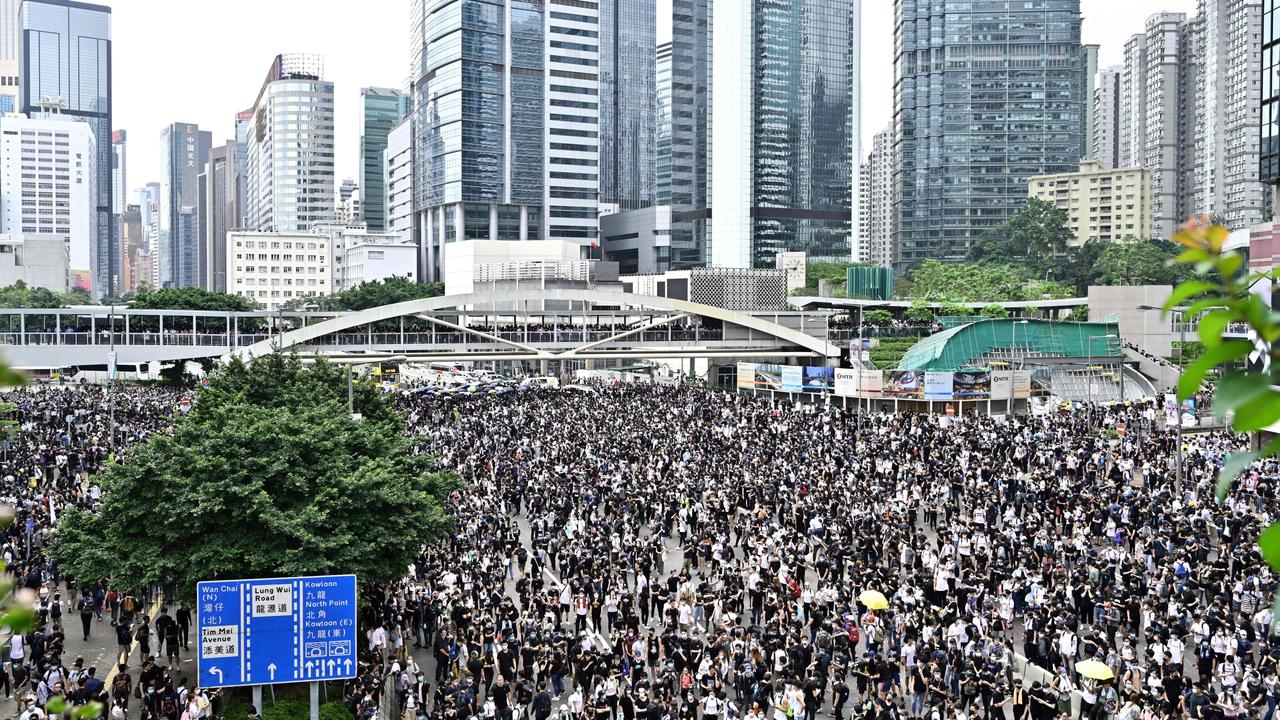
They also appeared mindful of Beijing’s growing use of electronic surveillance such as facial recognition technology to build dossiers on those it considers politically unreliable, with many donning surgical or anti-pollution masks to hide their features as well as to safeguard against tear gas.
Such protests are never tolerated in mainland China, and Hong Kong residents can face travel bans and other repercussions if they cross the border.
Under its “one country, two systems” framework, Hong Kong was supposed to be guaranteed the right to retain its own social, legal and political systems for 50 years following its handover from British rule in 1997.
However, China’s ruling Communist Party has been increasingly reneging on that agreement by forcing through unpopular legal changes.
Plans to present the amendments to the legislature on Wednesday went ahead despite a weekend protest by hundreds of thousands of people that was the territory’s largest political demonstration in more than a decade.
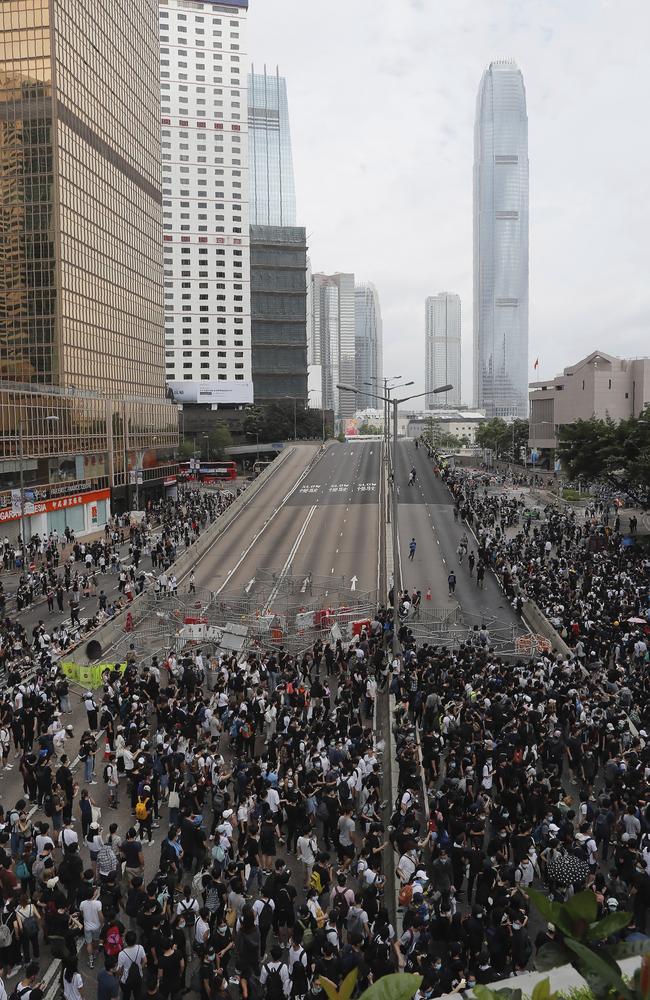
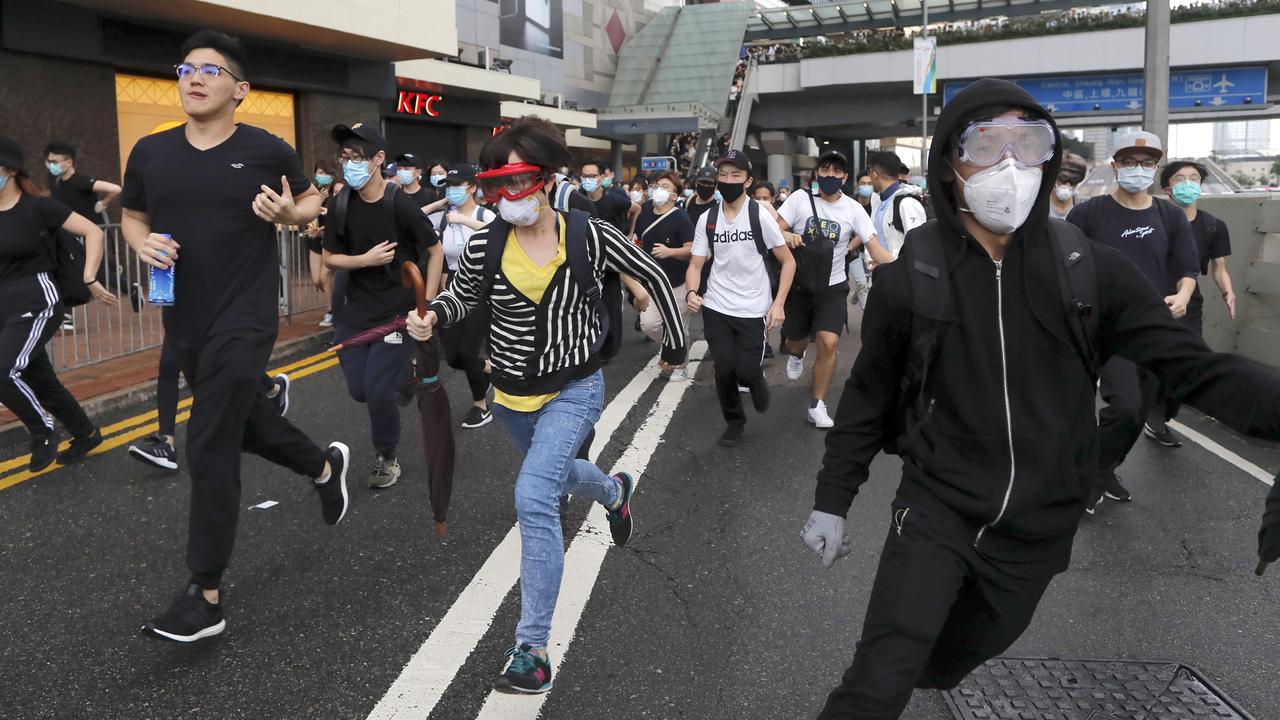
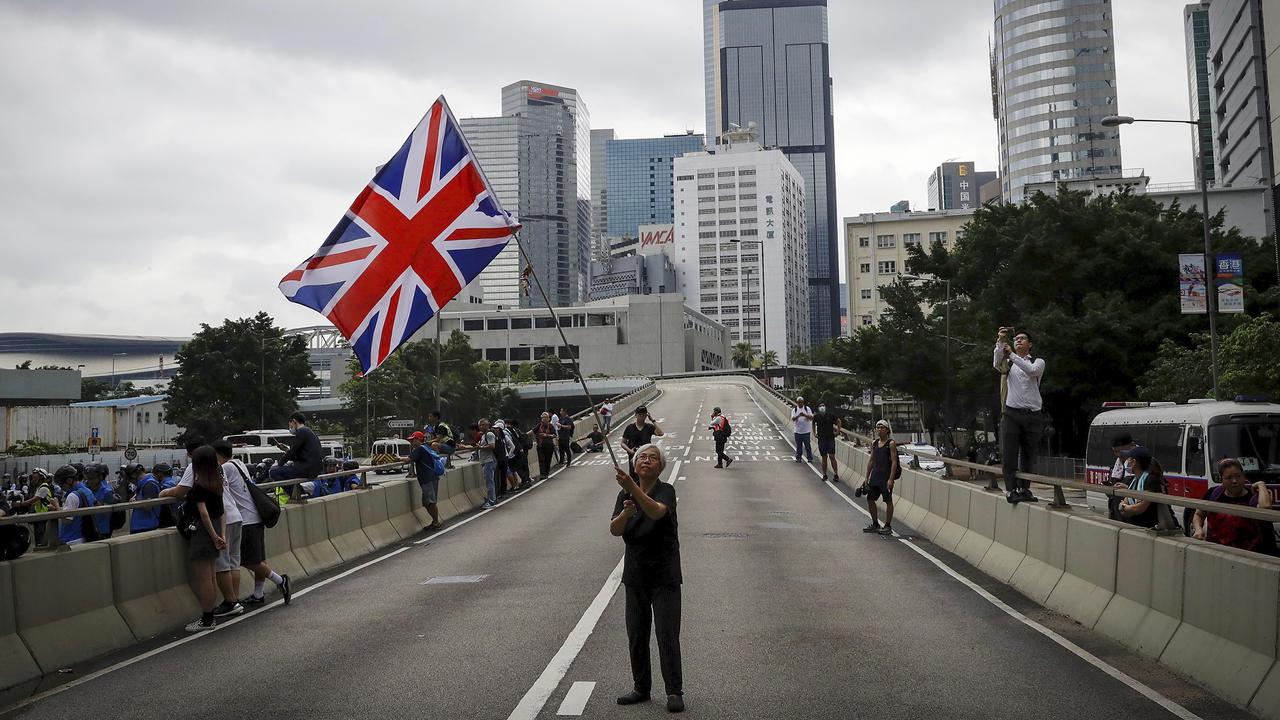
A crowd began gathering outside the Legislative Council on Tuesday night, and the US Consulate warned people to avoid the area, exercise caution and keep a low profile.
The legislation has become a lightning rod for concerns about Beijing’s increasing control over the semi-autonomous territory.
Ms Lam has consistently defended the legislation as necessary to close legal loopholes with other countries and territories. A vote is scheduled on June 20.
Sunday’s protest was widely seen as reflecting growing apprehension about relations with the Communist Party-ruled mainland, where Mr Xi has said he has zero tolerance for those demanding greater self-rule for Hong Kong.
Critics believe the extradition legislation would put Hong Kong residents at risk of being entrapped in China’s judicial system in which opponents of Communist Party rule have been charged with economic crimes or ill-defined national security offences and would not be guaranteed free trials.
Ms Lam, who cancelled her regular question and answer session on Wednesday, said the Government had considered concerns from the private sector and altered the bill to improve human rights safeguards. She said without the changes, Hong Kong would risk becoming a haven for fugitives.
She emphasised extradition cases would be decided by Hong Kong courts.
Opponents of the proposed extradition amendments say the changes would significantly compromise Hong Kong’s legal independence, long viewed as one of the crucial differences between the territory and mainland China. Hong Kong currently limits extraditions to jurisdictions with which it has existing agreements and to others on an individual basis. China has been excluded from those agreements because of concerns over its judicial independence and human rights record.
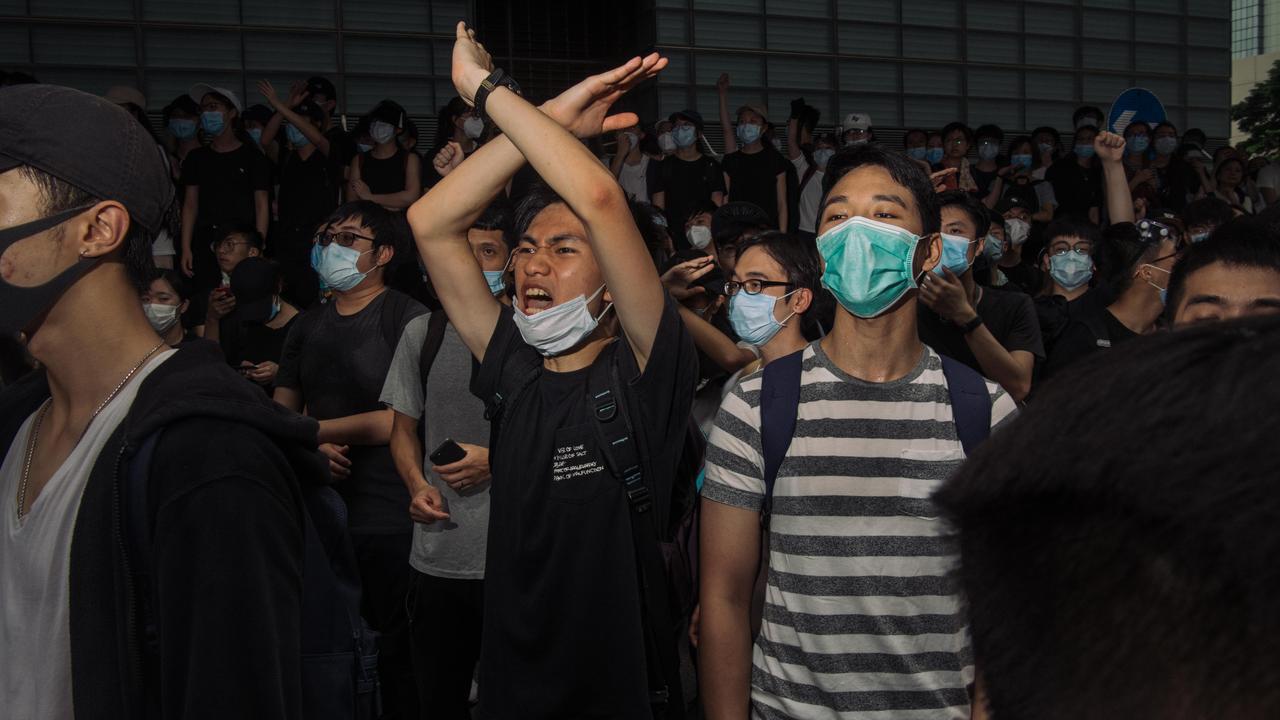
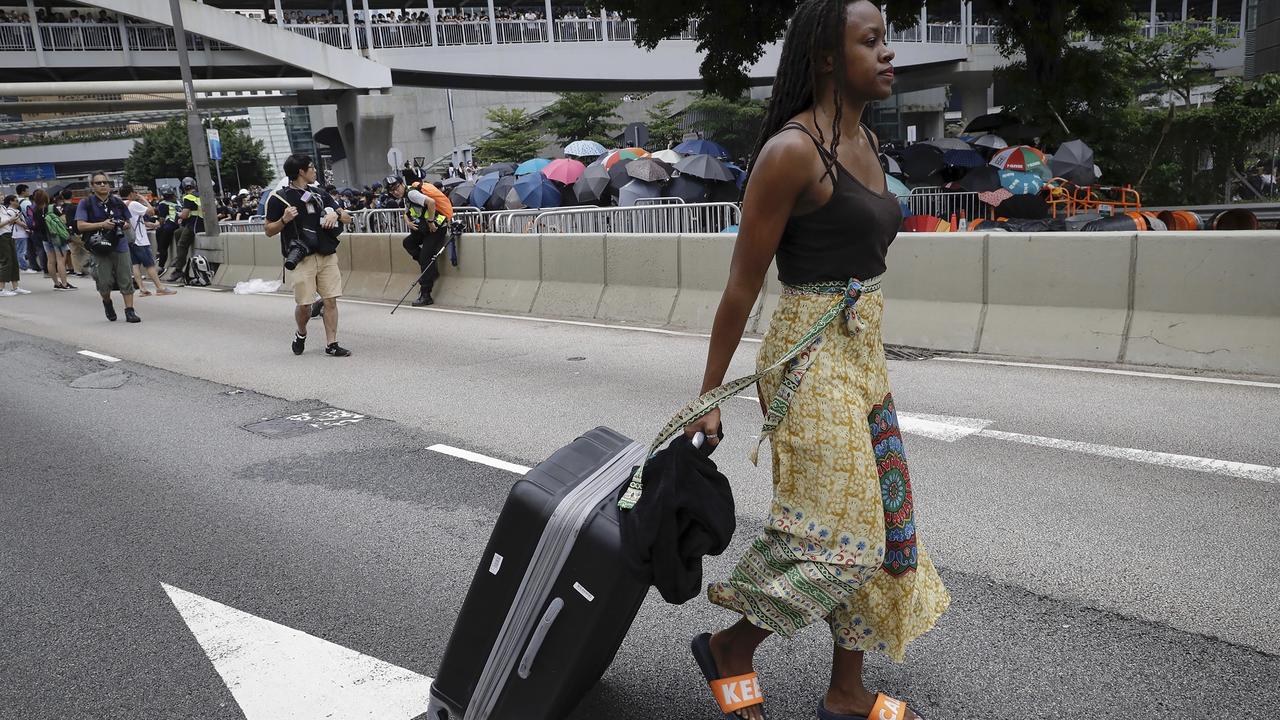
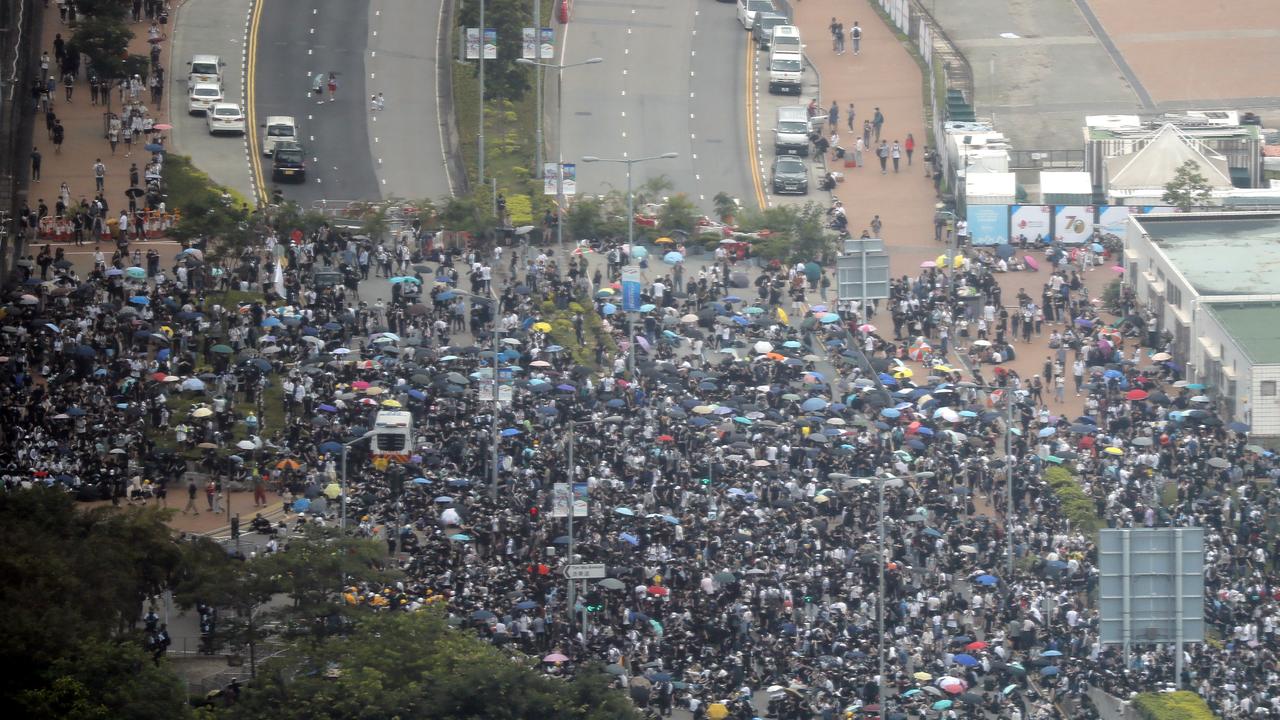
Those in Hong Kong who anger China’s central government have come under greater pressure since Mr Xi came to power in 2012.
The detention of several Hong Kong booksellers in late 2015 intensified worries about the erosion of Hong Kong’s rule of law.
The booksellers vanished before resurfacing in police custody in mainland China. Among them, Swedish citizen GUI Minhai is being investigated on charges of leaking state secrets after he sold gossipy books about Chinese leaders.
In May, Germany confirmed it had granted asylum to two people from Hong Kong who, according to media reports, were activists fleeing tightening restrictions at home. It was the first known case in recent years of a Western government accepting political refugees from Hong Kong.
— Associated Press journalists Raf Wober and Alice Fung in Hong Kong and Sally Ho in Seattle contributed to this report



